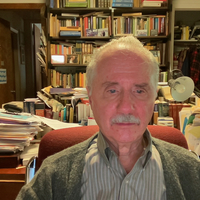
Tibor Porcio
Related Authors
Richard P Martin
Stanford University
James Mallinson
University of Oxford
Philipp A Maas
Leipzig University (Universität Leipzig)
Armando Marques-Guedes
UNL - New University of Lisbon
Florin Curta
University of Florida
Peter B Golden
Rutgers, The State University of New Jersey
Michal Biran
The Hebrew University of Jerusalem
Marlene Laruelle
The George Washington University
Béla Kempf
University of Szeged
Robert Mayer
University of Oxford
InterestsView All (30)










Uploads
Papers by Tibor Porcio
The Turkic speaking peoples of Central Asia, especially the Uygurs, must have been very susceptible to the culture and religions of peoples with whom they lived or had long been in contact. Thus they adopted e.g. Manichaeism, Zoroastrianism, Buddhism and Islam. Among these religions, in the pre-Islamic period, it was undoubtedly Turkic (Uygur) Buddhism which developed to the most colorful stage. While e.g. Manichaeism and Zoroastrianism were transmitted to the Turks practically only by the Sogdians, Turkic Buddhism was influenced by several sources such as Sogdian, Tokharian, Chinese and Tibetan.
The paper together with a selected bibliography are designed to give an overall picture of the not very well-known history of Turkic Buddhism and its literary remains.
The Turkic speaking peoples of Central Asia, especially the Uygurs, must have been very susceptible to the culture and religions of peoples with whom they lived or had long been in contact. Thus they adopted e.g. Manichaeism, Zoroastrianism, Buddhism and Islam. Among these religions, in the pre-Islamic period, it was undoubtedly Turkic (Uygur) Buddhism which developed to the most colorful stage. While e.g. Manichaeism and Zoroastrianism were transmitted to the Turks practically only by the Sogdians, Turkic Buddhism was influenced by several sources such as Sogdian, Tokharian, Chinese and Tibetan.
The paper together with a selected bibliography are designed to give an overall picture of the not very well-known history of Turkic Buddhism and its literary remains.